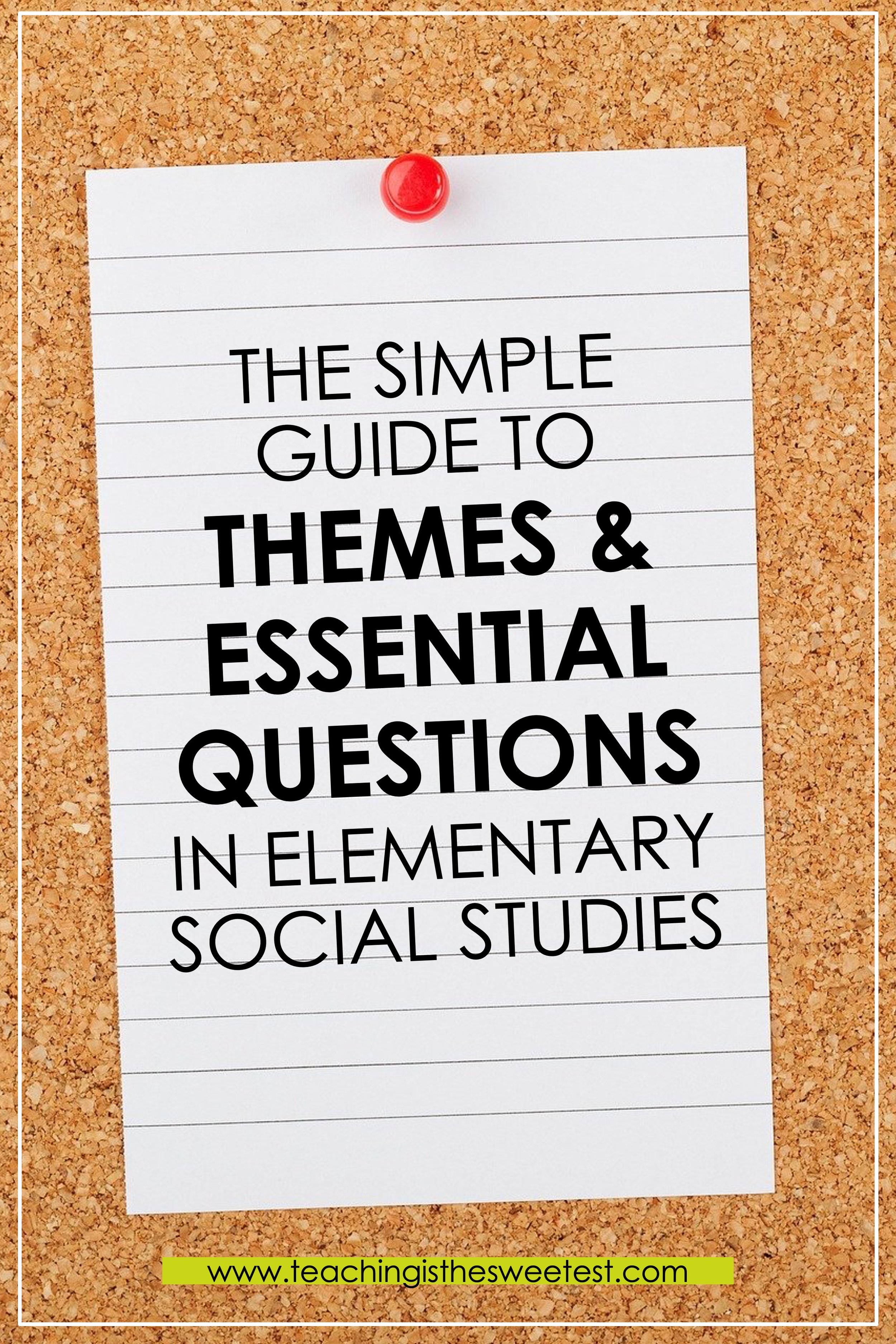The Simple Guide to Themes & Essential Questions in Elementary Social Studies
Themes and Essential Questions dig into the big ideas of Social Studies and push students to think critically. Approaching your Social Studies instruction through the lens of these tools will make a tremendous impact in your class that extends beyond the four walls of your room and the 180 days of the school year.
This simple guide will show you:
What are themes?
First, let’s talk about the five major strands of Social Studies:
Some people use the phrase ‘strands of Social Studies’. A commonly used list of the five major strands of Social Studies are:
Government & Civics
Sociology (some use “Culture” instead)
Economics
History
Geography
Sometimes, people use the term “themes” to describe those strands. However, the themes I’m talking about in this post are different than the strands (or as some call them “themes”) I just listed. The themes I’m referring to are the big ideas that can be found within and across those strands.
Simply put, themes are the big ideas of Social Studies. Themes help us take a lot of smaller pieces and group them together under one umbrella so that we can think more deeply about them. They are similar to themes of literature. Here are a few example themes:
conflict & peace
freedom & rights
government & control
movement
Just like English professors would have a lively debate about the “right” list of themes for any Shakespeare piece, you should know that “The Right and Complete List of Social Studies Themes” does not exist. A single right list doesn’t exist, so you can find freedom in that!
What are Essential Questions?
Now, let’s look at exactly what Essential Questions are and why they matter.
These questions usually can’t be answered in a single sentence, and often there isn’t necessarily one right or wrong answer.
Sometimes there can be more than one answer.
Essential Questions are big questions that historians and other academics spend a great deal of time considering.
These questions help us connect the past to the present.
These questions aren’t specific to one event or time period.
They are questions that can be asked about things, places, and people across time.
Essential Questions help us see that history is not fixed.
Our understanding of things of the past is evolving as the world changes and as we learn more about perspectives and impact over time.
Most importantly, Essential Questions prepare students to be active and engaged citizens.
They encourage students to construct their own thinking about matters of the past and equip them with the critical thinking skills that are necessary for today’s world.
Example Themes & Essential Questions
Geography
THEME: movement
ESSENTIAL QUESTIONS:
What makes a place unique?
How does a place affect the people who live there?
How do people impact the environment?
Government
THEME: power, conflict, peace, control
ESSENTIAL QUESTIONS:
What is the purpose of government?
What happens without government?
What is power?
Citizenship
THEME: freedom, rights
ESSENTIAL QUESTIONS:
What are the roles and responsibilities of citizens?
What does it mean to be a good citizen?
Can one person make a difference?
Economics
THEMES: money, value
ESSENTIAL QUESTIONS:
What is the purpose of money?
How do people get what they need?
What determines the value of something?
Sociology
THEMES: culture, diversity, conflict, peace
What are the benefits of diversity?
What happens when different groups of people live together?
History
THEMES: conflict, peace, change
Why do countries go to war?
How do countries or groups find peace?
How does our understanding of history change?
Technology and research are also key components of Social Studies. Consider exploring these questions with your students:
Technology
THEMES: change, communication
Is new technology always better?
How does technology impact cultures and people groups differently?
What are the limitations of technology?
Research
THEME: truth
How does new information change thinking?
How do I know when I have enough information?
How do I know information is reliable?
Why do I need to think critically about what I read?







